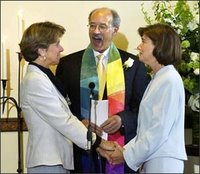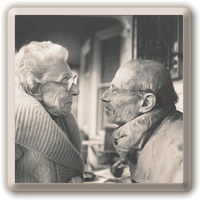 For the last couple of weeks I've received a few emails from the generally excellent Campaign to Defend the Constitution (aka DefCon) about a new video game called "Left Behind: Eternal Forces".
For the last couple of weeks I've received a few emails from the generally excellent Campaign to Defend the Constitution (aka DefCon) about a new video game called "Left Behind: Eternal Forces".If you're not familiar with the "Left Behind" franchise, it's based off Skeletor-lookalike rapture fundamentalist Tim LaHaye's popular book series. It's also spawned movies starring creepy Kirk Cameron. Now it's branched out to a crappy video game.
All well and good. Bad prose and bad movies often spawn bad video games.
Unfortunately, DefCon has gotten all in a snit over the game:
Just in time for Christmas, the religious right has released a violent video game in which born-again Christians aim to convert or kill those who don't adhere to their extreme ideology. Disturbingly, the game's apparent attempts at religious indoctrination are aimed at children and focus on violent, divisive, and hateful scenarios. While the religious right apparently has no problem pushing the product this holiday season, America's #1 video game seller should know better.
Take action now and urge Wal-Mart to stop selling religious violence this holiday season.
Now, I don't know if their main idea is to get major retailers not to sell the game at all of if they just want Wal-Mart to be consistent in its moralizing. Wal-Mart, of course, refuses to sell certain games due to content all the time. Either way, they're horribly misguided.
Worse yet, they've attracted other groups to their cause, and I've seen complaints about the game pop up on several liberal blogs.
One thing I thought the "reality based community" had a good grasp on was the fact that video games are not reality. Grand Theft Auto didn't make people go out and shoot hookers, Doom didn't cause the Columbine shootings, and Sim City has been responsible for very few city-planning disasters. Left Behind similarly is not going to cause its players to go out trying to kill or convert everyone they see (though some players may already have those propensities).
Unfortunately, the mainstream media has picked up on this story, which will mostly have the effect of selling more games. Reuters, AP, and the Boston Globe all have stories. I even heard it mentioned on Al Franken's Air America show (ugh, that's hard to admit listening to).
Here's some advice to liberals who want this game to go away. Shut up about it!
All indications are that it's a really terrible game based solely on its gameplay alone:
- IGN review: Scored 5.9 / 10
- GameSpy review: Scored 2 / 5
- GameStats review: Scored 4.0 / 10
- Gamespot review: Scored 3.4 / 10
This game can do a great job of failing on its own merits, it doesn't need anyone to help it along.
Yes, the premise offends a lot of people. It is pretty awful. But censorship is censorship, and there's no place for it.
It all reminds me of the truly awful game Postal, which came out back in 1997. It was violent and stupid and not the least bit fun to play, but I played it. So did enough other people that it got an equally stupid and violent sequel.
Why did so many people play such a craptastic game? Because Joe Lieberman made a public issue out of it (in return, easy mode in Postal 2 was named "Liebermode"). He gave a ton of free press to a bad game that would have died a quiet death under the boot of just not being very fun and made it sound cool.
So please liberals, leave the whining about video games to the conservatives and Joe Lieberman. Defend the company's right to make and distribute lousy games about offensive subject matter. Stick with reality, we've certainly got enough instances of the wall between church and state breaking down to keep us busy. You can't defend the first amendment by attacking video games, you can only do it harm.
Sticking our nose in video game sales is not just silly and counterproductive, it's dangerously close to advocating censorship. This is not a fight we should be a part of.











